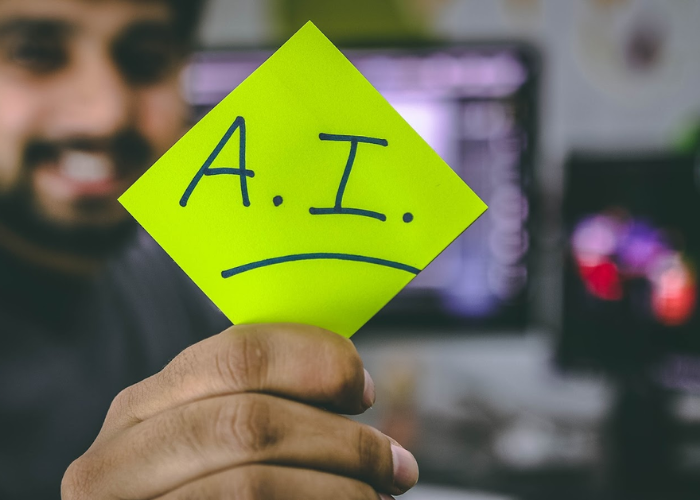Artificial Intelligence (AI) has revolutionized numerous industries. This advanced technology has changed how many sectors operate, making daily lives easier and more productive. Interestingly, the short-term rental sector is also benefiting from the advent of artificial intelligence.
From improving customer experiences to optimizing operational efficiency, AI has played a pivotal role in enhancing the overall quality of short-term rental experiences. Let’s delve into the various roles AI plays in this sector.
AI Roles in Enhancing Short-Term Rental Experiences

Here are some of the core roles of artificial intelligence in enhancing short-term rental experiences:
-
Personalized Recommendations
One of the significant advantages of AI in short-term rentals is its ability to provide personalized recommendations to guests. By leveraging machine learning algorithms, AI platforms can analyze vast amounts of data, including guest preferences, past bookings, and user reviews, to generate tailored suggestions.
These recommendations can range from suitable properties that match specific requirements to nearby attractions and activities that align with the guests’ interests. This level of personalization saves guests time and enhances their overall satisfaction by providing a more customized experience.
AI also comes in handy in short-term rental investing, as it can provide valuable tips on how to buy a rental property that will yield huge returns. AI-powered chatbots integrated into rental platforms can engage in real-time conversations with guests, addressing their queries, recommending local restaurants, or suggesting popular tourist spots. This interactive approach, backed by AI, ensures that guests receive relevant information promptly, making their stay more enjoyable.
-
Streamlined Operations
In terms of streamlining the operational facets of short-term rentals, AI has proven to be a game-changer. Automation of regular processes like visitor check-ins, key management, and housekeeping scheduling is possible with property management systems that include AI capabilities. Resource allocation can be optimized using AI algorithms based on occupancy patterns, allowing property owners and managers to increase productivity and cut costs.
AI-powered smart home devices are also increasingly integrated into short-term rentals, providing guests with a seamless and technologically advanced experience. For example, voice-controlled assistants can control lighting, temperature, and entertainment systems, enhancing convenience and comfort. These devices can also monitor energy usage, enabling property owners to implement eco-friendly practices and reduce utility expenses.
Additionally, property owners can use AI analytics to spot irregularities and patterns in visitor behavior to spot potential problems or hazards like fraudulent reservations or property damage. Property owners can provide visitors a safer and more secure atmosphere by proactively addressing these issues.
-
Dynamic Pricing Optimization
The pricing of short-term rental homes has also been completely transformed by AI. Traditional pricing models frequently relied on human analysis and market research, which resulted in static prices that didn’t take demand variations into account in real-time. However, the scene has changed as a result of dynamic pricing optimization made possible by AI-powered pricing solutions.
By analyzing various factors such as historical booking data, market trends, seasonality, competitor rates, and even external events, AI algorithms can dynamically adjust rental rates to maximize revenue and occupancy.
These algorithms continuously learn and adapt, allowing property owners to stay competitive in a rapidly changing market. As a result, they can optimize their pricing strategies to attract more guests during off-peak periods, increase revenue during high-demand seasons, and respond quickly to market shifts.
Dynamic pricing optimization not only benefits property owners but also offers advantages to guests. It enables them to find more competitive rates and secure better deals. Additionally, by aligning prices with demand, AI-powered pricing models contribute to a more balanced market and promote fair competition among short-term rental providers.
-
Enhances Security and Safety
In the short-term rental sector, protecting visitors’ safety and security comes first. AI has significantly improved these features with cutting-edge technology. Real-time monitoring of properties is possible with AI-powered surveillance systems, which can also identify suspicious activity and send alerts as needed.
These systems use machine learning and computer vision algorithms to spot potential security risks like illegal access or strange behavior. Property owners may offer a secure environment for their visitors, boosting their entire experience and peace of mind by proactively detecting and addressing security risks.
Moreover, AI can authenticate guests, enhancing the verification process and minimizing the risk of fraudulent bookings. AI algorithms can analyze various data points, including identification documents, social media profiles, and online behavior patterns, to verify the identity of guests and reduce the likelihood of unauthorized individuals gaining access to rental properties.
-
Efficient Property Maintenance
Maintenance is necessary for short-term rental properties to remain in good condition and receive positive feedback from guests. By automating and improving numerous processes, artificial intelligence (AI) technology can help with effective property maintenance.
AI-powered systems can monitor the state of rental homes and infrastructure like HVAC, plumbing, and appliances. AI systems can identify possible maintenance issues before they develop into more severe difficulties by gathering data and applying predictive analytics. This proactive strategy enables property owners to handle maintenance issues as soon as they arise, minimizing inconvenience for visitors and averting expensive repairs.
Furthermore, AI can facilitate efficient scheduling and coordination of maintenance and cleaning tasks. By analyzing booking patterns and occupancy data, AI systems can optimize the allocation of resources, ensuring that properties are cleaned and maintained promptly between guest stays. This streamlines operations reduces downtime, and enhances the overall guest experience by providing well-maintained and clean accommodations.
-
Data-Driven Insights
Operators of short-term rentals can benefit from the insights provided by AI’s capacity to process and analyze enormous amounts of data. Property owners can better understand their visitors, their preferences, and general market trends by using AI-powered analytics solutions.
AI can analyze data to find patterns and trends in customer reviews, enabling property owners to pinpoint areas of concern and fix any repeating problems. This feedback loop permits ongoing improvements and modifications to increase customer satisfaction.
Additionally, AI can offer practical market knowledge by examining data from numerous sources, such as competitor pricing, guest demographics, and booking trends. This knowledge enables property owners to make informed decisions regarding pricing tactics, on-site amenities, and marketing initiatives, ultimately boosting competition and profitability. It helps provide profit-generating rental property management strategies.
Short-term rental companies can make data-driven decisions, customize their offers to match guest expectations, and remain competitive by using AI to extract useful insights from data.
-
Improved Guest Communication
To guarantee a great short-term rental experience, clear and effective communication is essential. AI technology can improve visitor experiences by delivering quick and tailored responses.
Virtual assistants and chatbots powered by AI can respond quickly to various guest questions and requests while offering support. These AI systems can respond to typical inquiries regarding check-in procedures, amenities, local recommendations, and more because they are built on understanding standard language. Automating these interactions allows property owners to offer 24/7 assistance to their visitors, improving convenience and responsiveness.
Furthermore, AI can facilitate multilingual communication. Language translation algorithms can instantly translate messages and conversations, enabling property owners to communicate effectively with guests from different linguistic backgrounds. This capability eliminates language barriers and ensures that guests feel understood and valued.
Conclusion
Artificial Intelligence (AI) has transformed the short-term rental industry, enhancing guest experiences and optimizing operations. From personalized recommendations to dynamic pricing, streamlined maintenance, and improved communication and safety measures, AI plays a multifaceted role in shaping the future of short-term rentals.







